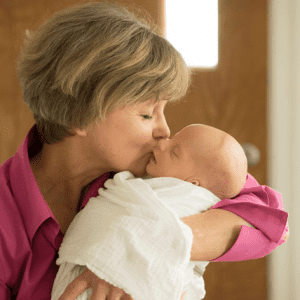By Dr. Nita Coleman
 I practiced pediatrics for 35 years in Elizabeth City, North Carolina. I well remember the bad old days when so many children were uninsured, and I’m worried that proposed rollbacks to the Affordable Care Act and Medicaid could reverse our hard-earned progress.
I practiced pediatrics for 35 years in Elizabeth City, North Carolina. I well remember the bad old days when so many children were uninsured, and I’m worried that proposed rollbacks to the Affordable Care Act and Medicaid could reverse our hard-earned progress.
When you practice so long in a small town, as I have, you have a lot of stories to tell about the kids and families you have known. The hardest part of my job was always attending the funerals of patients who died.
When a child died from cancer, or severe congenital disabilities, or an accidental injury, it was a tragedy, and I grieved along with those families. But when a child died from untreated asthma, as two of my patients did, I was angry — not at the parents, who were doing their best, but at the failings in our health care system. In both cases, the kids were uninsured, and their parents, who were working full time, couldn’t afford to get their children the treatment they needed. Asthma controlling medication is expensive, completely out of reach for low income families. These kids both had multiple ER visits for flares, and we knew they were high risk. One had been admitted to the ICU several times. Both died in the night. One had a Primateen Mist (an inexpensive over the counter inhaler) in his hand when he died. I will never forget these two boys, and I am glad to say I haven’t attended a funeral for a child who died from asthma in the last decade. I hope I never have to again.
While the consequences of being uninsured are not always so extreme, they always have a serious and lasting impact on children’s health. Parents would come in to our office with sick kids and did not have enough money to pay for both the doctor visit and the medication that we prescribed. In those situations, we would waive the visit fee so that they could get their child’s medicine from the pharmacy.
Many parents waited far too long to come in with their sick child, because they had no insurance. We saw severe skin infections that had spread to the joint or the bone, requiring hospital admission. These would have been easily managed in the outpatient setting, if treated earlier. I remember broken bones from falls that healed poorly, because the parents, fearing the cost, had waited for a week or more to see if things would get better on their own. Quite often, we had to admit uninsured children with severe asthma flares. Once admitted, they could get the medicine they needed to control their asthma, and have some to take at home after discharge. This was a less-than-ideal solution, but the only choice we had in those circumstances.
I also want to tell you how much things have changed as more children have become insured and gained access to preventive care. In the old days, many kids didn’t come for their well-child visits at all. They got their shots at the health department and we only saw them when they were sick. I remember diagnosing lazy eye in 5-year-olds, who had presented for their state mandated kindergarten screening. Lazy eye is much harder to correct in a 5-year-old, and permanent unilateral visual deficit can be the consequence of late diagnosis and treatment. Nowadays, lazy eye is diagnosed and treated much younger and the outcomes are much better. We have also seen a huge decline in severe dental caries and abscesses. The school nurses used to send kids who were crying in class with tooth pain to the ER because they had no insurance and no dentist. Most kids have a dental home now and get earlier preventive care.
Many parents who did bring their child in for well-child exams declined vision screening, hearing screening and developmental screening, because their insurance (if they had it) didn’t pay to cover these essential parts of the exam. Autism was diagnosed much later back then. Early intervention was a lost opportunity when an autistic child wasn’t identified until he was starting kindergarten. We do routine screenings now at well child visits starting at 18 months, and refer for evaluation and therapy early. What a difference that has made in children’s lives.
I am counting on our legislators to strengthen health insurance coverage for kids, not dismantle it to keep a campaign promise. Kids don’t get to pick their parents or their financial circumstances. It is all of our responsibility to make sure that kids get the health care they need, when they need it. In these turbulent times, we need to put our kids in the lifeboat first. I want to live in an America where EVERY child is insured, with comprehensive benefits. Surely we can all agree that is a worthy goal, and it is doable. We can’t settle for anything else.
Dr. Nita Coleman is a retired pediatrician who practiced for 35 years in Elizabeth City, North Carolina.
